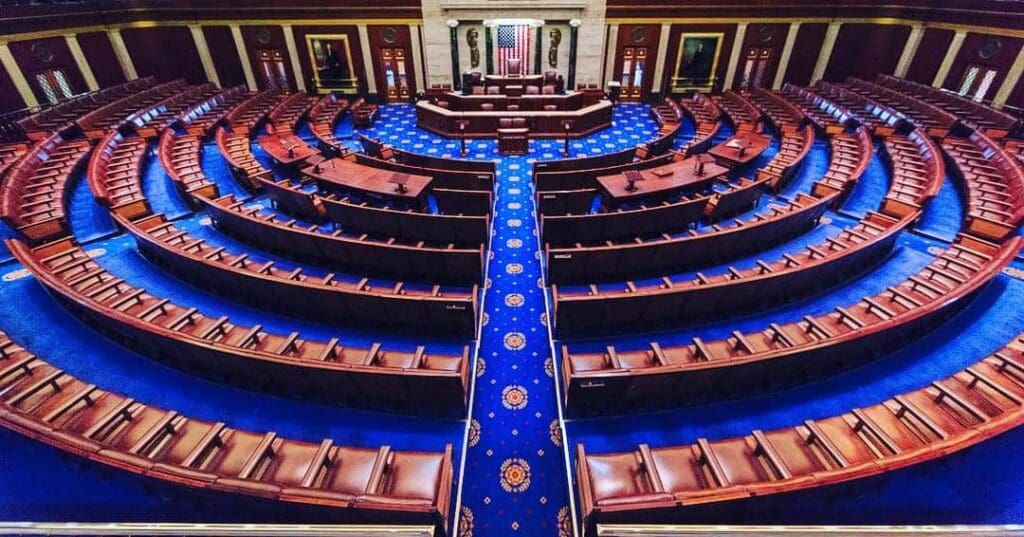The spread of AI-generated videos and images ahead of the US election once again highlights the imminent threat that deepfakes pose to our society, and the recent bipartisan movement to amend Section 230 It reveals growing calls for legal liability across the supply chain for fake sexual abuse material. .
Reflecting this, members of the U.S. House of Representatives recently called for bipartisan regulations that would impose legal liability on developers of AI systems used to create deepfakes. In the House, Rep. LaTurner (R-Kan.) said:
“Anyone with a laptop can create realistic images, videos, and audio clips depicting events that never actually happened. This threatens our safety and damages our election systems. The developer should be held responsible for the damage it causes.”
This was further emphasized by Representative Morrell (D-NY).
“Deepfakes are abhorrent and the developers of these systems must be held accountable.”
The public wants regulations against deepfakes
Opinion polls show that such measures are supported by the general public.
84% of respondents said companies that created AI models used to generate fake political content should be held accountable, while 84% of respondents said they should not be held accountable. It was 4%. 70% support a bill that would hold artificial intelligence companies liable if their models are used to create deepfake political content, while only 13% opposed it. This includes 71% of Republicans, 74% of Democrats, and 63% of independents. 75% support holding developers of AI models accountable if AI-generated content is used for fraud or deceptive political tactics. 66% support holding Eleven Labs accountable for deceptively using its model in the New Hampshire primary. Meanwhile, only 14% oppose holding companies accountable.
Reactions to the anti-deepfake campaign
The No Deepfakes Campaign is leading this effort, and its members include the National Organization for Women (NOW), SAG-AFTRA, Plan International, and the Future of Life Institute (FLI). On July 30, NOW hosted a media virtual roundtable on this topic (recording, password: H223.6&&).
One of its supporters, actor, author, and activist Ashley Judd, issued the following statement:
“Deepfakes and the AI tools used to create them are causing incredible harm 24 hours a day, and they are becoming faster, cheaper, and easier to create at an alarming rate. Non-consensual pornography accounts for 95% of deepfakes and 99% of sexually explicit deepfakes. The problem with deepfakes is that society easily sexualizes girls and women, strips us of our humanity, and thwarts the purpose of sex and sexuality. reflects gender equality.
“The only effective way to combat this rampant fraud lies in the deep fake creators and distributors, as well as the AI that develops and deploys these technologies. We need to pass legislation now that guarantees accountability for girls and women from across the political spectrum. It’s heartening to see people coming together to discuss welfare. As an activist for women’s equality, an actor, and a victim of non-consensual deepfakes myself, I support the campaign to ban deepfakes and the efforts to disrupt the supply chain that causes this tremendous harm. I will do my best to support you.”
FLI President Max Tegmark, one of the founding members of the campaign, released the following statement:
“This bipartisan debate on deepfakes is an important step toward stopping the growing threat of deepfakes to society. Laws addressing deepfakes must criminalize and hold accountable at every stage of production and dissemination. I’m glad to see that some members agree that this issue should be addressed. The only way to fight back is for governments to hold the entire supply chain accountable, requiring AI developers and adopters to demonstrate that they are taking steps to prevent deepfakes in their systems. This includes making it compulsory and allowing people harmed by deepfakes to sue those responsible for damages.
“There is broad bipartisan support for regulating deepfakes in the United States, and legislation needs to be passed urgently. They spread non-consensual sexual images, commit fraud, and spread misinformation. Deepfakes continue to proliferate. As capabilities improve and the creation and distribution of deepfakes becomes faster, cheaper, and easier, this problem is getting worse. I look forward to passing legislation in the House of Representatives to stop this rapidly accelerating threat to society.”
If you have any questions, please contact Max Tegmark, National Organization for Women President Christian Nunez, Encode Justice President Sneha Revanur, or your Congressional Representative Office.
Ban Deepfakes is a diverse coalition of organizations and individuals working to disrupt the deepfake supply chain at every step. Supporters include celebrities such as author Steven Pinker and actor Ashley Judd, and members include the National Organization for Women, Equality Now, SAG-AFTRA, Plan International, FLI and more. They are calling on U.S. lawmakers to impose meaningful accountability and legal responsibility on everyone involved in the creation and distribution of deepfakes, including the developers and deployers of AI systems.



